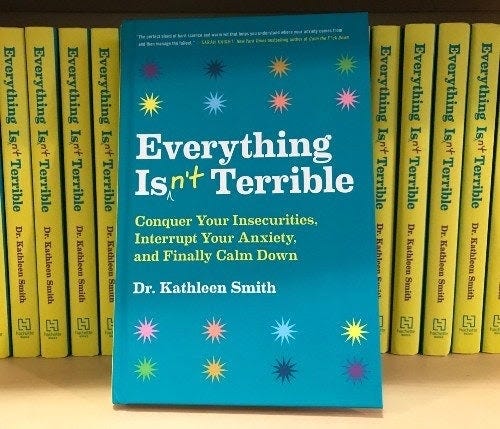Humans spend a lot of energy thinking about other people’s thinking. This is called mentalizing, and it’s our greatest superpower as a species.
We spend our entire lives developing and editing theories about how people will react in a given circumstance. For example, I’d guess that someone will be unhappy if they step in dog poop, or thrilled if they win a million dollars. By anticipating what others will want, or how they will react, we create groups that run more efficiently. We create a level of social cooperation that is unmatched by any other organism.
There’s gotta be a catch, right? This predictive ability is vulnerable to anxiety. The more anxiously focused I am on the potential reactions of others (sometimes called relationship orientation), the more sensitive I become. I’m more likely to assume the worst of people, or assume they think the worst of me. I may find them extremely annoying, or assume I annoy the hell out of them. This generates what Bowen theory calls chronic anxiety.
Chronic anxiety in a system could look like:
Assuming people find you annoying.
Assuming people don’t want to see you.
Worrying about whether you talked too much/not enough.
Focusing on what you “should” or “ought” to be doing.
Constant self-comparison with others.
To manage this chronic anxiety:
We begin to distance ourselves.
We ask for reassurance to calm down.
We anxiously try to “fix” or keep up.
We shut down and give up.
You can berate yourself for focusing so much on other’s reactions. Or, you can see this as a chance for greater self-definition. I spend a lot of time wondering whether I’m annoying people (without any evidence). On a good day, I try to see this anxiety as a check engine light for my own maturity. A chance to define what I think it means to be respectful and not annoying.
Intense focus on others is an opportunity to get clearer with yourself about what you think, how you’re doing, and who you’d like to be. Anxiety is not always a sign that you’ve screwed up. Sometimes it’s an indication that solid thinking is missing. When we lack our own principles for life and relationships, we will make assumptions based on our feelings or anxious guesses about what others think. These are two very unreliable sources.
Let’s look at the difference between relationship orientation and self-definition.
Relationship orientation: I wonder if my emails are annoying him.
Self-definition: Is my communication necessary and respectful? Am I passing on my anxiety, or managing it myself?
Relationship orientation: Did they think I rambled too much in that meeting?
Self-definition: What are my principles for clear, concise communication?
Relationship orientation: Maybe she doesn’t want to hang out with me.
Self-definition: Do I want to hang out with her? Can I let her be responsible for speaking up if she doesn’t?
Relationship orientation: Does he expect me to work harder?
Self-definition: What do I think about my functioning at work lately? Do I need to have more contact with my boss, so I know his thinking?
Relationship orientation: Is this guy I’m dating ever going to text me back?
Self-definition: Do I think it’s helpful to contact him? At what point do I feel confident ending things?
For society to function, we have to make educated guesses about what others think. But if we are not managing our own anxiety thoughtfully, these guesses are likely to be way off. By focusing on how we want to operate in relationships, we also help ourselves think about others a little more realistically.
This week, I encourage you to think about where and when you’ve been anxiously focused on others’ thoughts and feelings. How can you get clearer about who you’d like to be? You may never know what someone really thinks of you, but you can be a person who lives out their own best thinking, interaction by interaction.
News from Kathleen
Exciting news! I’m working on another book with the wonderful folks at St. Martin’s Essentials. Stayed tuned for more updates and pre-order info.
***Building a Person-to-Person Community of Faith - I’m leading a 3-part conversation series June 1st, 8th and 15th, with Healthy Congregations, an interfaith organization that helps leaders apply systems thinking to life and ministry. Check it out if you’re clergy, a lay leader, or someone who just wants to think systems.
Want to support my free newsletter? Buy me a coffee to keep the thoughts flowing or share it with a friend.
Want to read more of my writing? Get my latest book, Everything Isn't Terrible, from Amazon, Barnes and Noble, Indiebound, or your local bookstore (best option).
Want a free anxiety journal with the book? Calming Down & Growing Up: A 30 Day Anxiety Journal includes thirty daily prompts to help you reflect on and respond to your anxious behaviors. To receive a copy, just email me your receipt of Everything Isn’t Terrible.
Email me if you’re interested in Bowen theory coaching or want me to speak to your group or workplace. Follow me on Twitter, Facebook, or Instagram.
Want to learn more about Bowen theory? Visit the Bowen Center’s website to learn more about their conferences and training programs.






Thank you for this post, it made me feel way different about how I fell and act at school